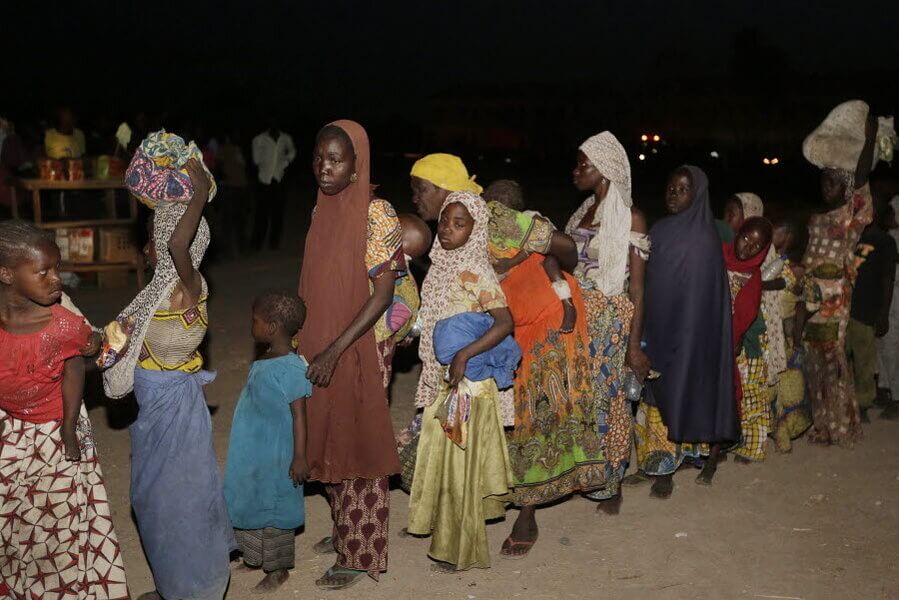The Biblical exodus of the Israelites from Egypt, a land of slavery, was a symbol of freedom. After several years of captivity and hard labour in Egypt, the Israelites, through the mighty hand of God, were freed from the cruelty and agonizing control of their taskmasters. Their rights and dignity were restored as Moses led them out of captivity.
But on their way to the “Promised Land”, they faced several unforeseen challenges. As a result, they intermittently regretted ever leaving Egypt. They could not help groaning to the ears of their leader, Moses. They boldly questioned the justification for leading them away from captivity on several occasions.
Ahead of the 2023 general election, the Independent National Electoral Commission or INEC reeled out assurances to Nigerians about the credibility of the exercise. INEC told Nigerians that every vote would count and whoever emerged winner in any of the elections would have been popularly elected by Nigerians.
This explained citizens’ assumptions that the country’s darkest days of electoral manipulations were over. Hopes were raised, and high interest rekindled in the electoral process for the first time.
The country saw unprecedented enthusiasm in young Nigerians, some of whom came out to register and cast their votes for the first time.
The uncommon interest in the electoral process was partly triggered by the new Electoral Act signed into law by President Mohammed Buhari on February 25, 2022, to repeal Electoral Act No. 6, 2010.
Section 50 of the law, apart from empowering the umpire to determine the mode of voting and transmission of results (manual or electronic), also allows INEC, for the first time, the legal backing to within seven days review the declaration of election results made under duress by returning officers and against the provisions of the law, regulations, guidelines and manual for the election.
Section 47 backs the use of smart card readers or any other technological device for the accreditation, verification, confirmation or authentication of the particulars of voters. Where the devices deployed for accreditation fail to function without replacement, the election will be cancelled while another poll is rescheduled within 24 hours.
The Act’s Section 62 mandates the Commission to compile, maintain and update, continuously, a register of election results to be known as the National Electronic Register of Election Results, a different database or repository of polling unit results, including collated election results of each election conducted by the Commission in the Federation.
Riding on the wings of these provisions, INEC firmly assured before the election that there would be an instant transmission of election results after the announcement from the polling units to its election result viewing portal for every interested person across the world to view. This undoubtedly was to confer greater credibility on the electoral process.
But unfortunately, on election day, particularly for the presidential election, INEC abandoned the electronic transmission it promised, shattering expectations as the presidential election was subsequently compromised. At that point, Nigeria took a trip back to Egypt, the land of oppression and captivity.
The taskmasters and oppressors of ordinary citizens once again gained the upper hand. The process, which looked fraud-proof ab-initio, was compromised, and the country fell as low as it has always been.
Besides the failure to transmit electronically, there was voter suppression, open threat to life, outbreaks of violence at voting points etc.
And what happens to the presidential promise to bequeath a better-reformed electoral system to Nigeria? President Buhari was expected to oversee the cleanest process devoid of issues that dragged the integrity of the previous elections into the mud in past elections.
Until the next world, millions of citizens, especially those who feel short-changed by the manual collation that the umpire deployed for the presidential poll, will unendingly question the believability of INEC’s position and explanation.
The umpire blamed its failure to transmit the result of the presidential poll electronically as it did with those of the Senate and House of Representatives (conducted the same day with the same devices) on technical glitches.
But for millions of Nigerians on the receiving end, either as political actors or patriotic nationals, it was a sad reminder of the days of old when elections were shamelessly manipulated at the collation stages in favour of the moneybags or those already anointed by the stools of power.
While President Buhari and the federal government make frantic efforts to force the charade on the country and the world, several election monitoring or observer bodies, including foreign ones, have described the presidential election as falling short of global standards.
The elections have come and gone, but the issues on their trail have become a sour taste on our tongues. The big question remains – where is the ultimate gain of the Electoral Act 2022 – a transparent, credible and globally accepted poll?
Why, Nigeria, did you go back to Egypt?
The Israelites' exodus from Egypt symbolized freedom from slavery, but their journey to the Promised Land was fraught with challenges, leading to intermittent regrets. Similarly, ahead of the 2023 general election in Nigeria, the Independent National Electoral Commission (INEC) assured voters of a credible process, raising hopes among citizens, especially after the signing of the new Electoral Act in 2022.
The Act introduced technological enhancements and legal frameworks to ensure transparent elections, such as electronic voting and result transmission. However, on election day, INEC failed to transmit the presidential election results electronically, citing technical glitches, which raised suspicions among citizens and observers. This failure, coupled with voter suppression and violence, echoed past electoral manipulations.
Despite President Buhari's promise of reformed elections, many Nigerians and international observers viewed the election process as deeply flawed. The incident has left a lingering sense of mistrust in the electoral system and questions about the ultimate effectiveness of the Electoral Act 2022 in delivering a transparent election.






